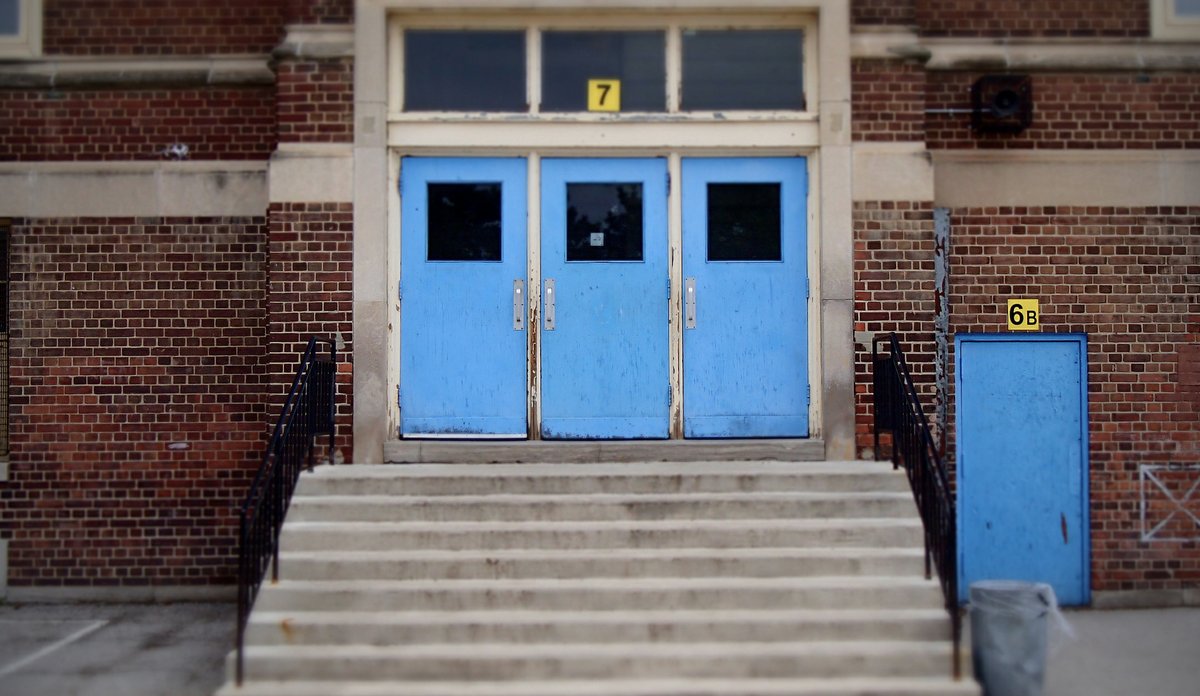Why does it seem as though it takes a tragedy for people to express gratitude for public schools and the teachers who work in them?
In Minneapolis on December 25, an early-morning fire forced 250 residents of the city’s Drake Hotel onto the streets. These people were not hotel guests in the traditional sense. Instead, they were either families or single adults in need of permanent shelter, as the Drake has been used as a transitional housing site by local officials in recent years.
On Christmas morning, as the fire burned through the Drake, the people living there were given temporary shelter on city buses before being moved to area churches and a suburban hotel. The cause of the fire has yet to be determined, although the historic building (once a regal place to spend the night) is scheduled to be demolished in the coming weeks and so the origins of the blaze may never be known.
Of the displaced residents, fifty are children who attend Minneapolis Public Schools. This propelled the 3,000-member Minneapolis Federation of Teachers into fast action on the day of the fire, with a handful of teachers quickly setting up a dropoff spot for donations.
This is the picture of public schools and public school employees that we rarely see in the media—or anywhere, really, in our contemporary, collective spaces.
By the end of the day on December 26, teachers union representatives had collected close to $10,000 in gift cards for families displaced by the fire. This earned the union both an outpouring of praise for their efforts and—at last—an acknowledgement of the tremendous challenges teachers often face while working with young people.
Take Minneapolis teacher Brionna Harder, who works at Patrick Henry High School on the city’s often underserved north side. When she first heard news of the Drake fire, Harder told Minnesota Public Radio that she immediately knew it would impact some of her students.
Harder noted that she and her colleagues are used to dealing with displaced students, as up to forty percent of kids at Patrick Henry High School in any given year are either homeless or shunted from one temporary home to another.
Yusuf Abdullah, principal of Harder’s school, mentioned the stress students with unstable housing often experience, along with feelings of shame that might make them less likely to reach out or accept help.
“We try to minimize that by letting them know that only a small few of us know, we’ve got their back, we’re going to support them through it,” he told MPR.
Teaching assistant Loretta VanPelt told MPR that she and other school support staffers try to determine what trauma-inducing factors, such as homelessness, might be affecting students who seem tired or easily upset.
“Kids kind of bring that with them and you try your best to be that stable thing in their life — and school for a lot of kids is what’s the most stable for them,” VanPelt said.
This is the picture of public schools and public school employees that we rarely see in the media—or anywhere, really, in our contemporary, collective spaces.
Instead, we talk about test score gaps, “failing” schools, and underprepared teachers. In Minneapolis, we hear endlessly about how the city’s public school system is in decline, thanks to shrinking enrollment numbers, school choice schemes and a general sense of bureaucratic bungling.
Rarely do we see our public schools for what they often are: a place of refuge and consistency for our most vulnerable kids. We also tend to only think of teachers as admirable advocates, ready to drop their holiday plans, perhaps, to help gather emergency supplies for families, when a jarring disaster strikes.
A reflection on the ten-year anniversary of 9/11 for the National Council on Teacher Quality, referred to teachers as “first-responders,” since so many had to guide students through the first shocking moments of the attacks that took place in 2001.
We experienced this again with the mass shooting in 2012 at Sandy Hook Elementary School in Newtown, Connecticut. Teachers and assistants there were recognized for doing all they could—from confronting the shooter to wrapping their arms around children amidst a barrage of bullets—to protect students.
We expect teachers and school staffers to be there when crisis hits.
The examples are not limited to violent tragedies. In 2014, Georgia teacher Stephanie Lavender Weber touched off a firestorm when she shared on Facebook her story of staying with her students all night during an unexpected snowstorm, until their parents could safely pick them up. At the end of her post, she challenged public school critics to “evaluate that”—a nod to the increasingly narrow, data-based framework for state teacher evaluations that can determine which teachers keep their jobs.
We expect teachers and school staffers to be there when crisis hits. We are comforted by the image of the teacher as protector or nurse, there to wrap his (but usually her) arms around a crying child.
But otherwise, we tend to skewer teachers and public school employees, buying into the false narrative that raising test scores is a teacher’s number-one job.
In Minneapolis, many organizations followed the Minneapolis Federation of Teachers’ lead and also raised funds for the victims of the Drake fire. But will this generosity of spirit, and this moment of respect for what teachers face in the classroom, last well into 2020?
Given what has come before, that seems unlikely.
Sarah Lahm | Radio Free (2020-01-03T07:50:07+00:00) Midwest Dispatch: A Christmas Day Fire Shows Teachers are More Than Test Scores. Retrieved from https://www.radiofree.org/2020/01/03/midwest-dispatch-a-christmas-day-fire-shows-teachers-are-more-than-test-scores/
Please log in to upload a file.
There are no updates yet.
Click the Upload button above to add an update.
